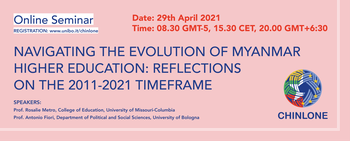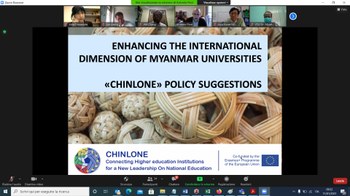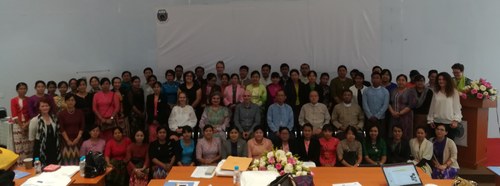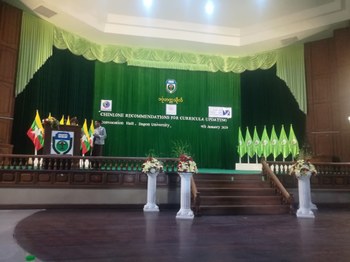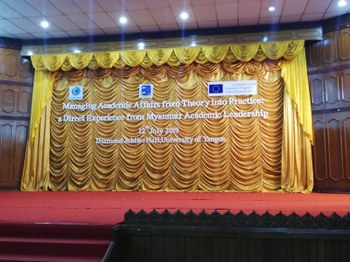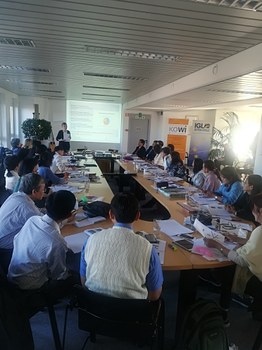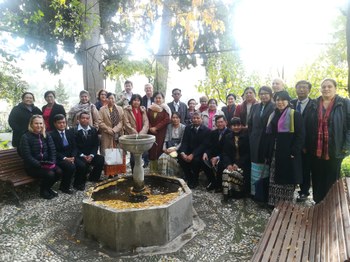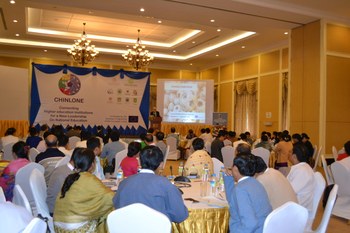CHINLONE SECOND CONFERENCE "Towards Academic Autonomy: Tools for Curriculum Design and Quality Assurance"
(Granada, 26 - 27 November 2018)
On 26 and 27 November 2018, the second conference of the CHINLONE Management Platform was held at the University of Granada (Spain) and covered the core topics of curriculum design and quality assurance.
Today’s main theme in the Myanmar Higher Education System is increasing the autonomy of Higher Education Institutions. To achieve this goal, it is crucial to problematise and rethink the organisation of university curricula also by taking into account the issue of quality assurance.
Against this backdrop, Granada’s conference started with a visit to the host University’s Quality Assurance Offices, where participants were explained how the QA System of the University of Granada works, what is their vision, their mission, and the challenges they face.
After this visit, , encompassing both Myanmar HEIs and EU partners, discussed the WP2.2 assignments, whose goal was to analyse degree programmes in the fields of Humanities and Cultural Heritage, Economics of Tourism, and Agricultural Sciences on the basis of a student-centred approach, also considering the goal of developing staff mobility agreements (WP3 – Educational Platform). In particular, the work groups were composed as follows:
- University of Yangon and University of Granada
- Yangon University of Economics and University of Granada
- Yezin Agricultural University and University of Bologna
- Mandalay University and University of Bologna
- Dagon University and Uppsala University
During the conference’s second day, the debate over QA practices was further enhanced by bringing into relief the most suitable monitoring tools for quality assurance. The discussion has been divided into three sub-sessions, one for each specific target group involved in and/or touched by QA practices: students, teaching staff members, and external stakeholders.
As far as students are concerned, Aurora Del Rio (University of Granada, Spain) provided examples of strategies for mapping and analysing students feedbacks and opinions thanks to surveys. These are an extremely useful tools to proactively evaluate both teaching units and teaching staff members in an anonymous way. CHINLONE partners will develop and pilot a survey tailor-made to the Myanmar context by summer 2019.
As regards teaching staff members, Geir Gunnlaugsson (Uppsala University, Sweden) emphasized how instructors can be supported in gaining a reflective approach to their own teaching practice as to the background factors and context that circumscribe higher education. CHINLONE partners will plan continuous education programmes specifically designed for instructors and for the Myanmar context by summer 2019.
With respect to stakeholder external to academia (e.g. employers, representatives of the “civil society” , alumni, and higher education institutions), Angela Ribeiro Cavazzuti (University of Bologna, Italy) explained how they can play a pivotal role in designing the structure of degree programmes, in proactively monitoring their success, and in defining the universities’ strategic planning. These aspects will be further explored in the next CHINLONE conference in Brussels.
Useful materials about the presentations are available in the box on the right.


